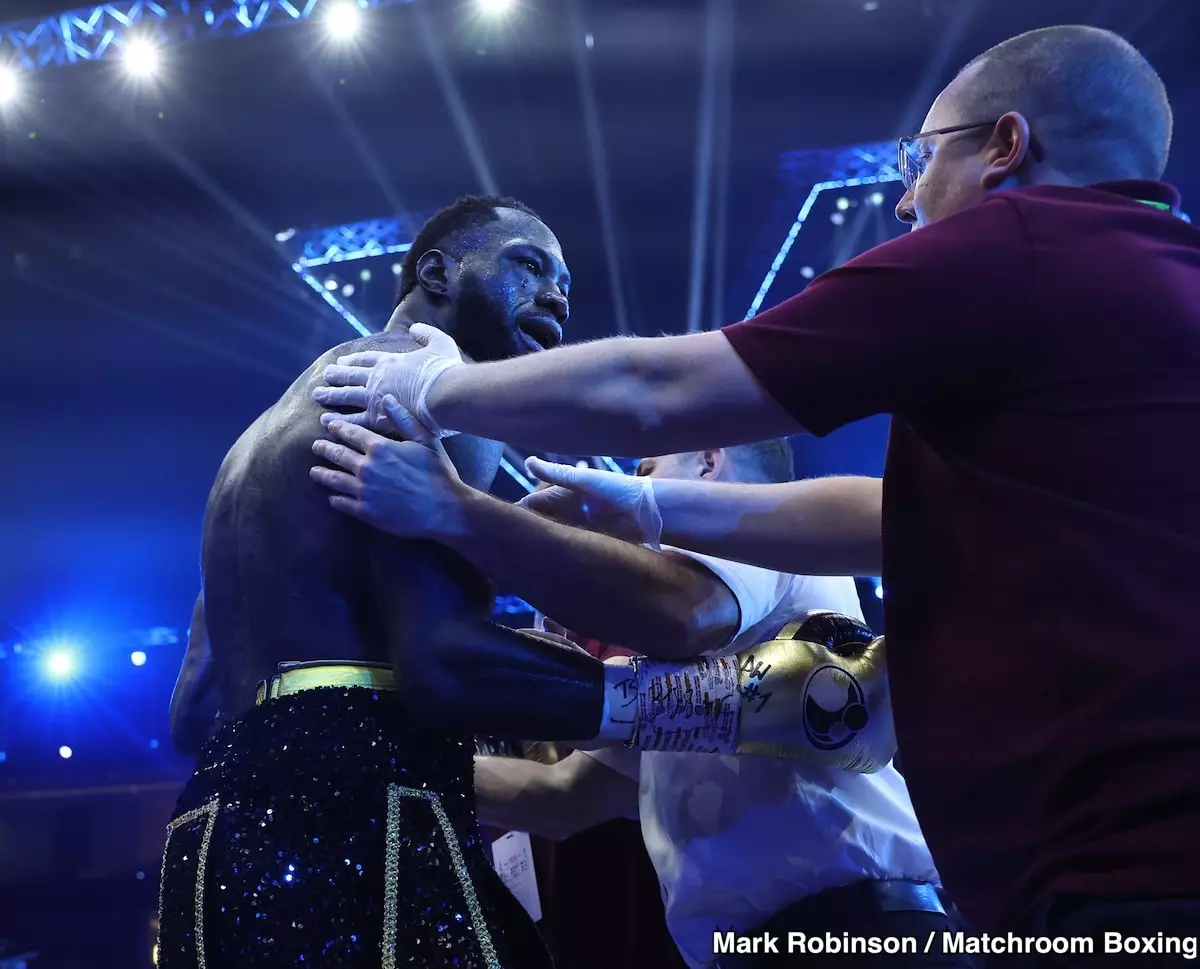Deontay Wilder, a name once synonymous with fear in the heavyweight boxing division, is set to return to the ring on June 27. He’ll be taking on Tyrrell Herndon in what can only be described as a curious match-up slated for Wichita, Kansas. This is an unusual choice for a comeback fight—far removed from the grandeur of Las Vegas or the storied Madison Square Garden. It feels more like a last-ditch effort than a glorious return. Wilder hasn’t tasted victory in over a year, and with two brutal defeats under his belt, the choice of opponent—a 37-year-old whose career has been defined by mediocrity—speaks volumes about the current state of Wilder’s boxing narrative.
Searching for Relevance in the Ring
Wilder’s record stands at 43 wins, 4 losses, and 1 draw, with an impressive 42 knockouts. However, the recent trends in his fights tell a different story. With only one win in his last five bouts, the former champion’s return is less about reclaiming a title and more about staying relevant. Promoters Nelson Lopez and Joshua Chasse are right to seek an optimistic narrative, but calling this fight a “legacy reloaded” feels disingenuous. When a boxer’s biggest challenge is against someone with five losses, three of which could easily be considered forgettable, the definition of a “legacy” becomes questionable.
Wilder’s past encounters with elite opponents, such as Tyson Fury, have often been monumental spectacles but were marred by the grim reality of defeat. The 0-2-1 record in their trilogy matches looms large over Wilder, who displayed his incredible punching power but ultimately fell short in legacy-building moments. To label these fights as memorable is to revel in destruction rather than celebrate achievement. While Wilder might be keen on offering a confidence boost to himself through a lesser opponent, the fear of his punches seems to have evaporated along with his past esteem.
The Illusion of a Comeback
Herein lies the crux of the issue: Wilder is not returning to reclaim his championship glory; rather, he seems to be taking a detour through Kansas to merely keep active. While the notion of a comeback usually evokes excitement and anticipation, Wilder’s situation feels like a career extension rather than a triumphant resurgence. Sure, he may be able to score a quick knockout against Herndon and ignite some buzz temporarily. However, will that fleeting moment provide any substantial insights into his future in boxing? The answer is a resounding no. The fight doesn’t represent a comeback; it’s a step toward retaining some semblance of his former self, simply serving as a ticket-selling event for a local venue rather than a testament to his legacy.
Moreover, the lightweight match could be seen not just as an attempt to reassure fans, but a strategic move to avoid facing dangers that could potentially further tarnish his already fragile reputation. A calculated risk, perhaps, but can we call it bravado when the match is aimed at securing a victory against low-level competition? The aura that once surrounded Wilder has all but dissipated; he no longer carries the same mystique that had fans on the edge of their seats.
Reflections on a Fading Legacy
Wilder’s previous power in the ring has not vanished, yet what lingers is the undeniable feeling of decline—both in performance and public perception. Despite his monstrous punching ability, that alone cannot nullify the reality of consecutive defeats. A night in Wichita will certainly not rewrite the history of the last several years nor will it convince critics and fans alike that he’s truly ‘back.’ Instead, it acts as a reminder that while the gloves may still be laced, the formidable reputation that once haunted competitors has already slipped away.
The narrative surrounding Wilder in this upcoming fight encapsulates a pivotal moment in his career. He may have the tools to put someone like Herndon away early, but that scenario does little to convince anyone that he’s a title contender once again. Instead, it feels more like an acknowledgment of the distance between him and his former glory days—a reminder that in boxing, much like life, transcending the past is a far more complex challenge than simply refusing to let go.

